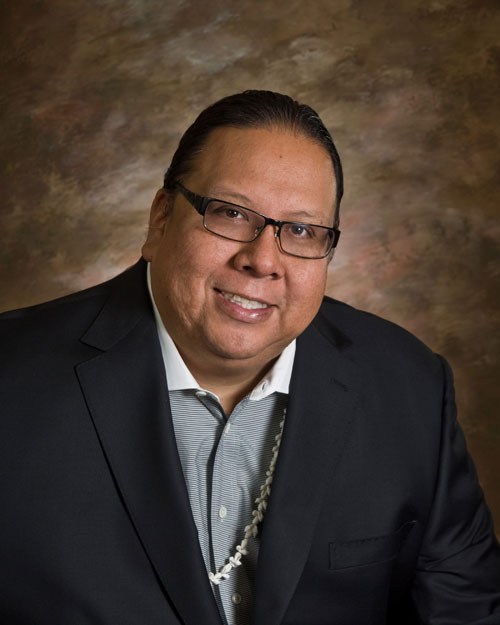In a special election held due to the resignation of Sault Ste. Marie of Chippewa Indians Chairperson Aaron Payment as recording secretary last month, the National Congress of Ameican Indians (NCAI) Executive Committee elected Stephen Roe Lewis, governor of the Gila River Indian Community, to fill the position on Wednesday.

NCAI’s Executive Committee is composed of four Administrative Board Officers, and Regional Vice-Presidents and Alternates from each of the 12 NCAI regions.
After being sworn in as recording secretary, Lewis said he looks forward to his new role with NCAI.
Want more Native News? Get the free daily newsletter today.
“I am honored to be elected to serve as Secretary of the National Congress of American Indians,” Lewis said. “NCAI holds a special place for me as the history of NCAI is intertwined with our growth as Tribal Nations and as tribal leaders. I look forward to working with Tribal Nations across Indian Country to find ways to unify and strengthen our collective voice in ways that elevate our relationship with our federal partners. After watching NCAI’s recent growth and rebuilding, I decided that I wanted to be part of this strong and committed board and know that, by working together, we will advance tribal sovereignty and usher in a new era of self-determination.”
The NCAI is the largest, and most representative American Indian and Alaska Native organization in the United States. NCAI advocates on behalf of tribal governments and communities, promoting strong tribal-federal government-to-government policies.
The Executive Committee will next convene the day prior to NCAI’s upcoming Executive Council Winter Session, the organization’s legislative conference, held virtually on February 14, 2022.
More Stories Like This
Native News Weekly (August 25, 2024): D.C. BriefsUS Presidents in Their Own Words Concerning American Indians
Native News Weekly (December 14, 2025): D.C. Briefs
Wounded Knee Massacre Site Protection Bill Passes Congress
Two Murdered on Colville Indian Reservation
Help us defend tribal sovereignty.
At Native News Online, our mission is rooted in telling the stories that strengthen sovereignty and uplift Indigenous voices — not just at year’s end, but every single day.
Because of your generosity last year, we were able to keep our reporters on the ground in tribal communities, at national gatherings and in the halls of Congress — covering the issues that matter most to Indian Country: sovereignty, culture, education, health and economic opportunity.
That support sustained us through a tough year in 2025. Now, as we look to the year ahead, we need your help right now to ensure warrior journalism remains strong — reporting that defends tribal sovereignty, amplifies Native truth, and holds power accountable.
 The stakes couldn't be higher. Your support keeps Native voices heard, Native stories told and Native sovereignty defended.
The stakes couldn't be higher. Your support keeps Native voices heard, Native stories told and Native sovereignty defended.
Stand with Warrior Journalism today.
Levi Rickert (Potawatomi), Editor & Publisher

